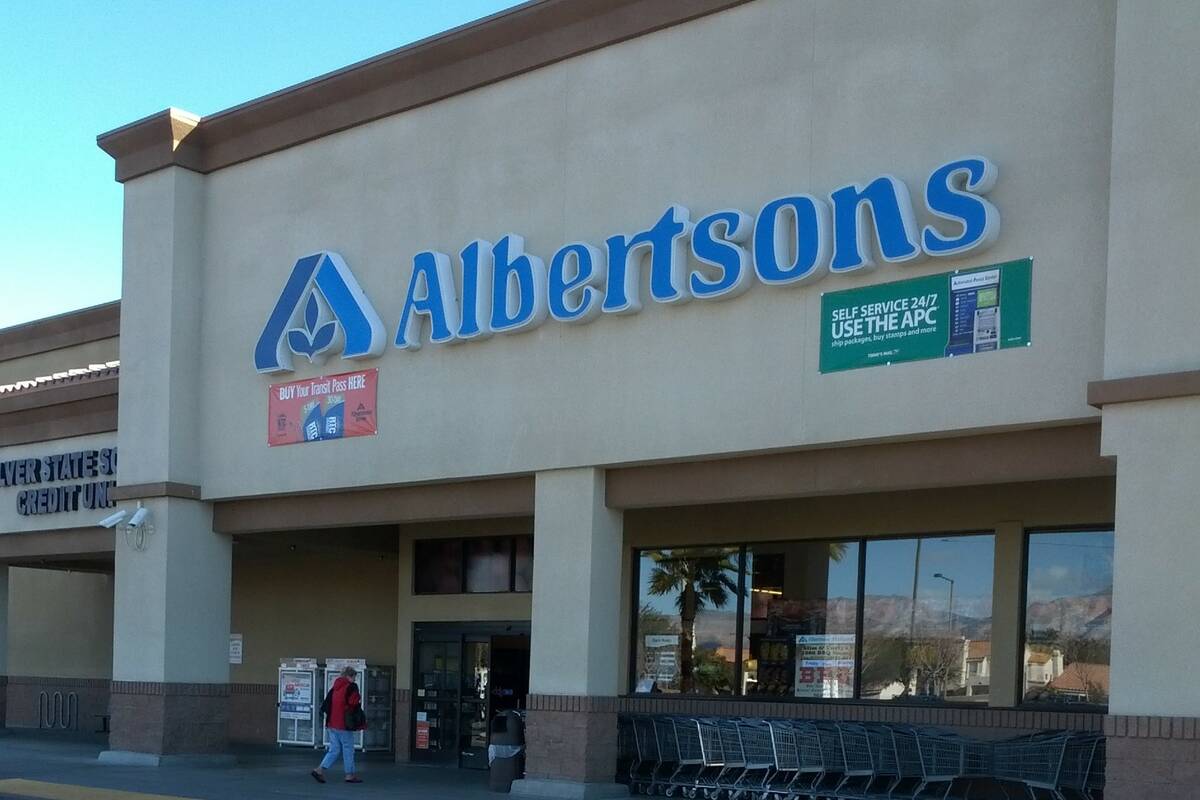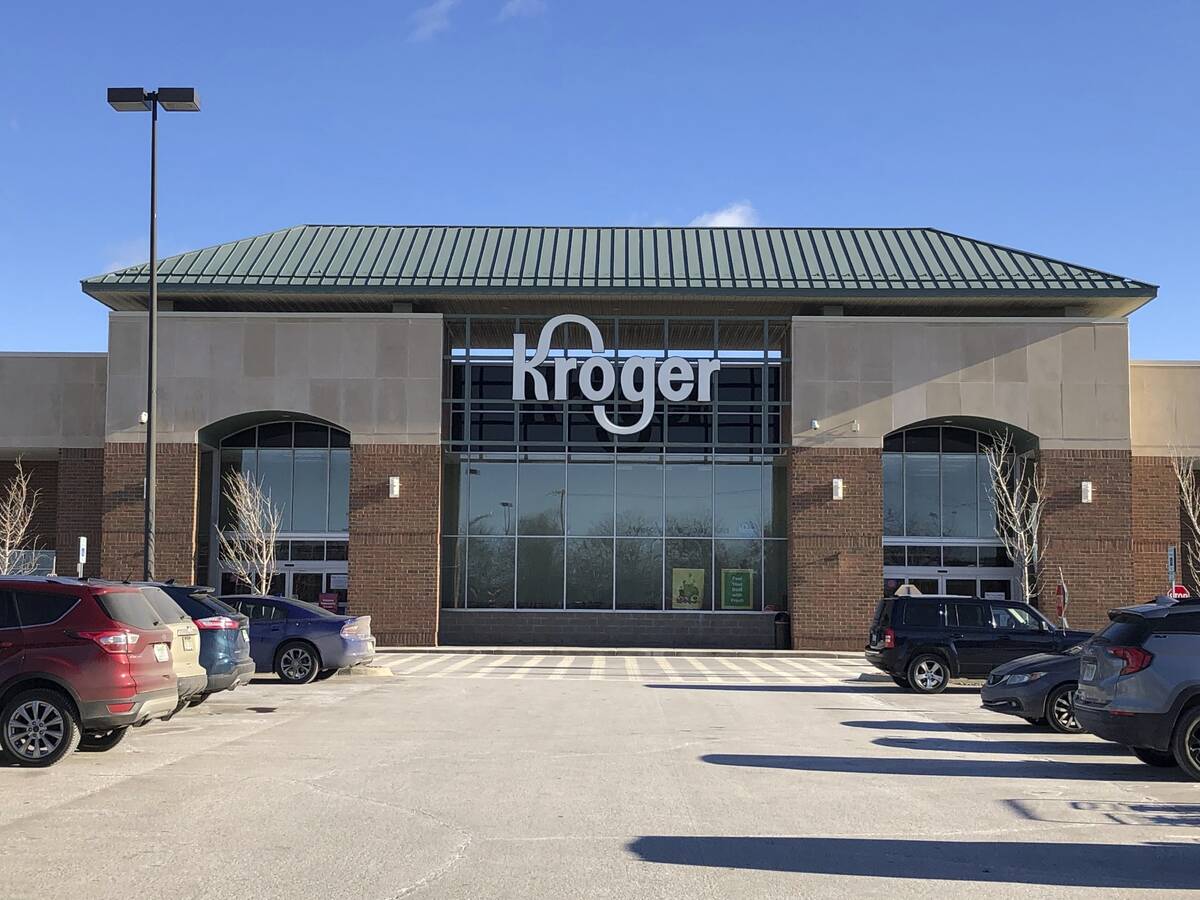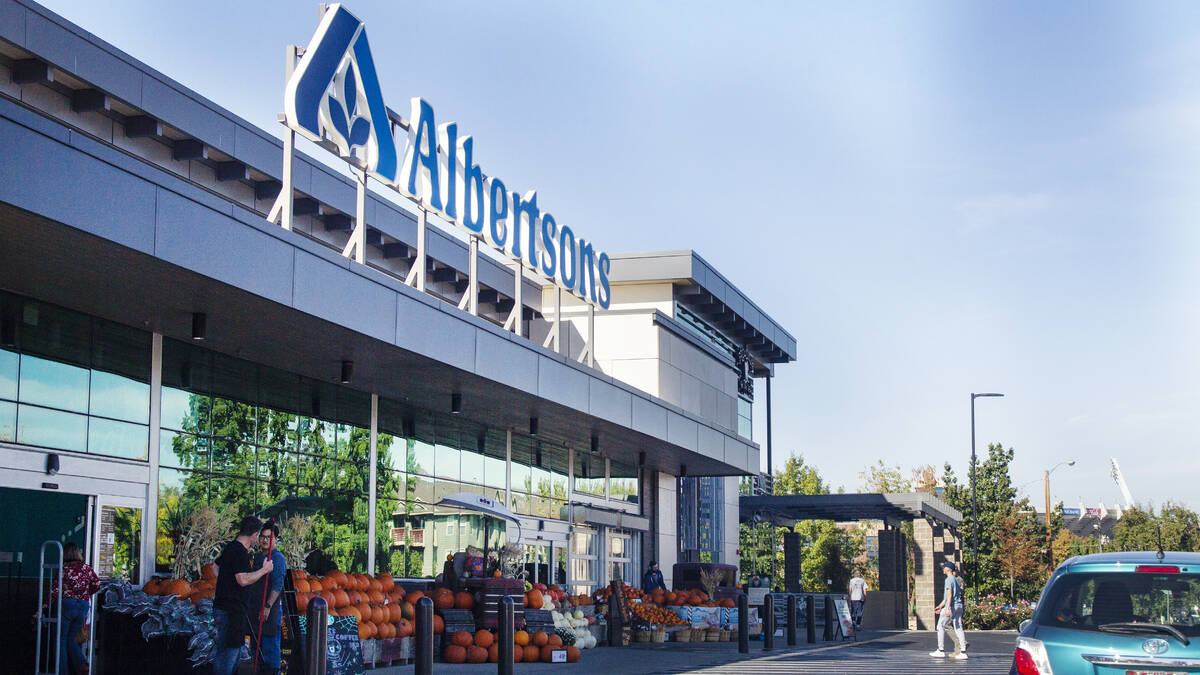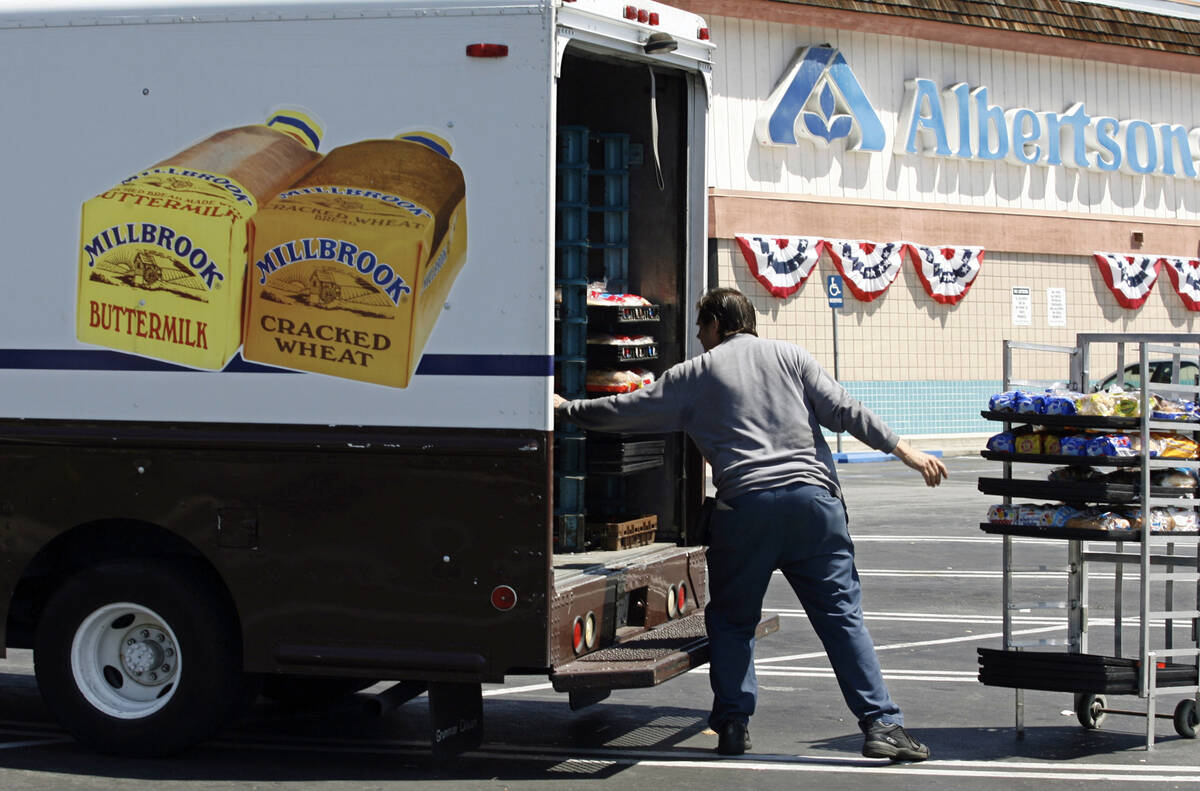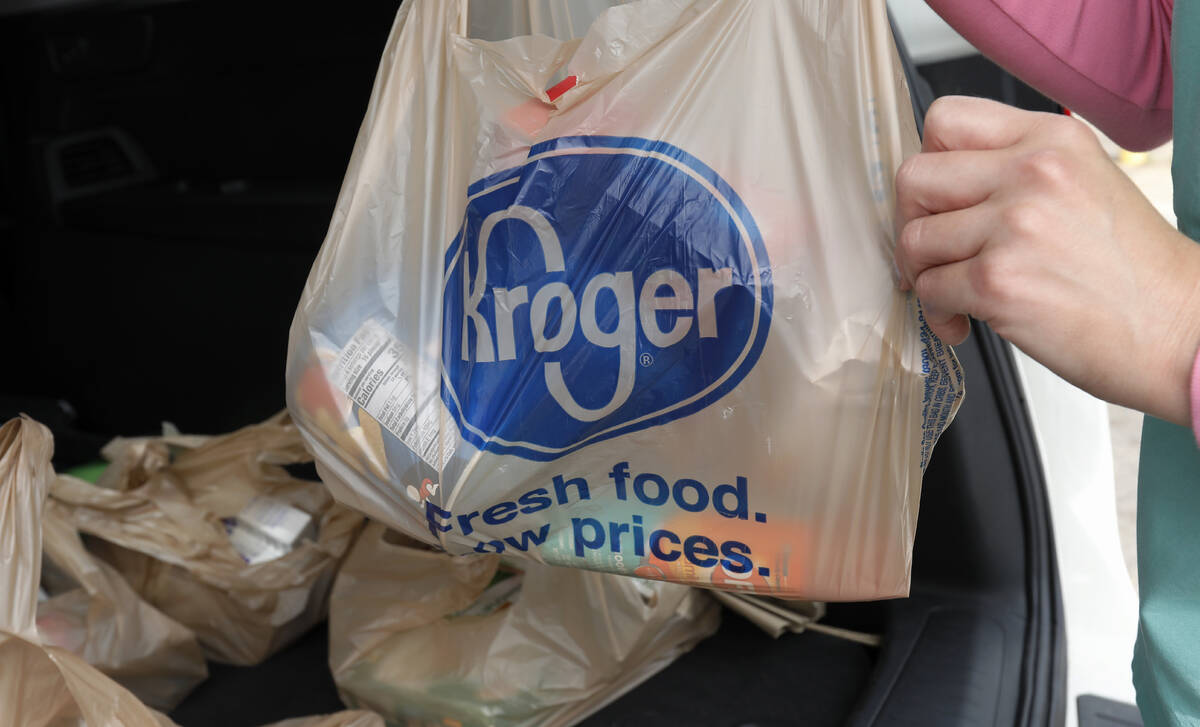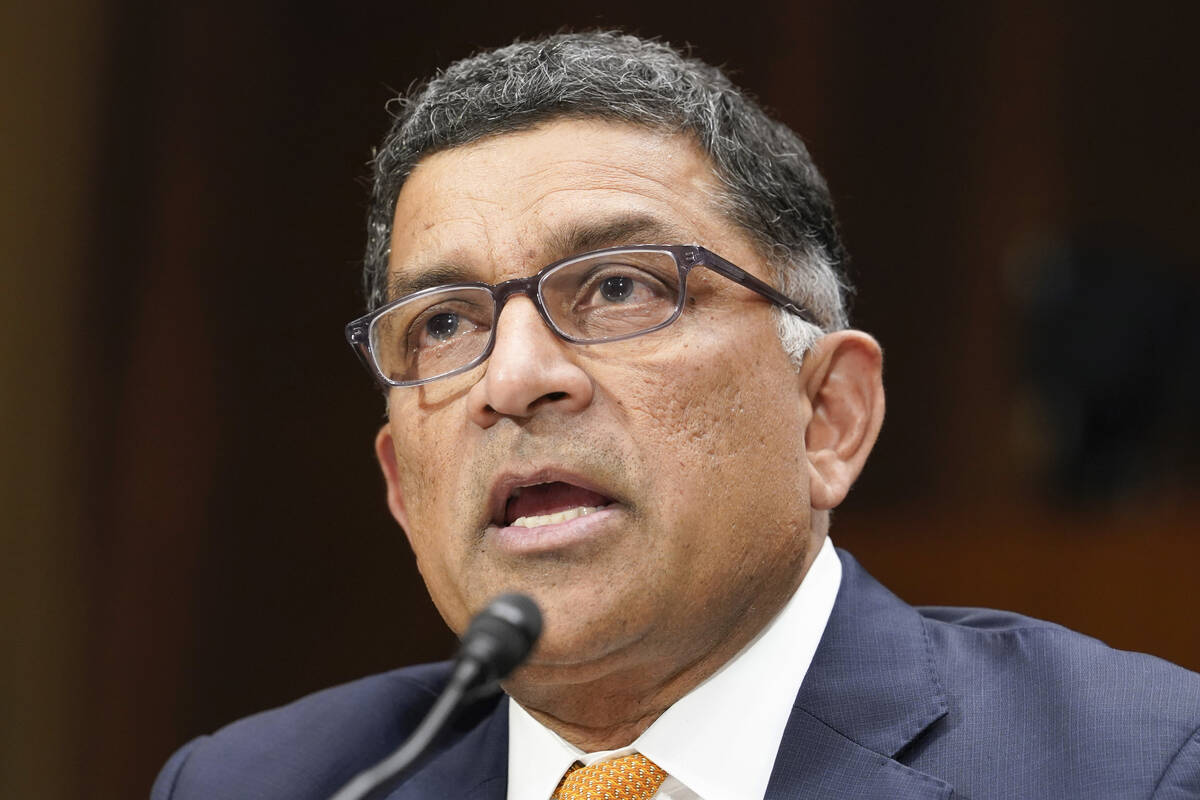Nevada, FTC sue to block Kroger-Albertsons merger, citing prices
Nevada and the Federal Trade Commission sued to block a proposed merger between grocery giants Kroger and Albertsons, saying the $24.6 billion deal would eliminate competition and lead to higher prices for millions of Americans.
The FTC filed a lawsuit in U.S. District Court in Oregon on Monday. Nevada Attorney General Aaron Ford joined in the suit with seven other states and the District of Columbia.
Kroger and Albertsons, two of the nation’s largest grocers, agreed to merge in October 2022. The companies said a merger would help them better compete with Walmart, Amazon, Costco and other big rivals. Together, Kroger and Albertsons would control around 13 percent of the U.S. grocery market; Walmart controls 22 percent, according to J.P. Morgan analyst Ken Goldman.
Cincinnati, Ohio-based Kroger operates 46 Smith’s grocery stores across 12 cities in Nevada, state officials previously said. Albertsons, based in Boise, Idaho, operates 35 Albertsons, seven Safeway-branded and nine Vons-branded stores. Together the companies employ around 700,000 people across the country.
“Nevadans made their concerns known regarding this merger, and we listened,” Ford said in a statement on X, formerly known as Twitter. “This merger would create an anticompetitive marketplace, raise prices on everyday Nevadans and harm grocery store employees. As someone who does the shopping for their family knows, grocery prices have climbed high in recent years. Nevadans don’t deserve for those prices to climb any higher.”
The merger, announced at a time of high food-price inflation, has long been under scrutiny from Nevada officials and their counterparts across the country. U.S. prices for food eaten at home typically rise 2.5 percent per year, but in 2022 they rose 11.4 percent and in 2023 they rose another 5 percent, according to government data. Inflation is cooling, but gradually.
“Kroger’s acquisition of Albertsons would lead to additional grocery price hikes for everyday goods, further exacerbating the financial strain consumers across the country face today,” Henry Liu, the director of the FTC’s Bureau of Competition, said in a statement.
The FTC, which said the proposed deal would be the largest grocery merger in U.S. history, said it would also erase competition for workers, threatening their ability to win higher wages, better benefits and improved working conditions.
Kroger has promised to invest $500 million to lower prices as soon as the deal closes. It said it also invested in price reductions when it merged with Harris Teeter in 2014 and Roundy’s in 2016. Kroger also promised to invest $1.3 billion in store improvements at Albertsons as part of the deal.
“The FTC’s decision makes it more likely that America’s consumers will see higher food prices and fewer grocery stores at a time when communities across the country are already facing high inflation and food deserts,” the company said in a statement Monday. “In fact, this decision only strengthens larger, non-unionized retailers like Walmart, Costco and Amazon by allowing them to further increase their overwhelming and growing dominance of the grocery industry.”
An Albertsons spokesperson said: “In contrast, Albertsons Cos.’ merger with Kroger will ensure our neighborhood supermarkets can better compete with these mega retailers, all while benefitting our customers, associates, and communities. We are disappointed that the FTC continues to use the same outdated view of the U.S. grocery industry it used 20 years ago, and we look forward to presenting our arguments in Court.”
Last year, C&S Wholesale Grocers agreed to purchase 413 stores, including 15 in Nevada, and eight distribution centers that Kroger and Albertsons agreed to divest in markets where the two companies’ stores overlapped. C&S said it would honor all collective bargaining agreements with workers.
Still, the United Food and Commercial Workers union, which represents 835,000 grocery workers in the U.S. and Canada, voted last year to oppose the merger, saying Kroger and Albertsons had failed to be transparent about the potential impact of the merger on workers.
The union was also critical of a $4 billion payout to Albertsons shareholders that was announced as part of the merger deal. Several states, including Washington and California, tried unsuccessfully to block the payment in court, saying it would weaken Albertsons financially.
Kroger and Albertsons had hoped to close the deal early this year. But the two companies announced in January that it was more likely to close in the first half of Kroger’s fiscal year. Kroger’s fiscal second quarter ends Aug. 17.
Las Vegas Review-Journal reporter McKenna Ross contributed to this report.



